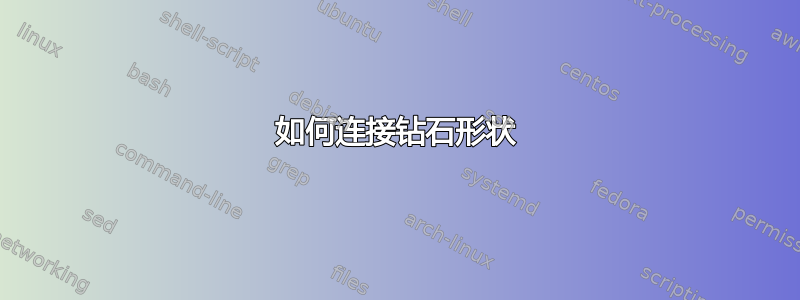
我想知道如何将块 3 的右侧与块 9 连接起来?
\documentclass[x11names]{article}
\usepackage{tikz}
\usetikzlibrary{shapes,arrows,chains}
%%%<
\usepackage{verbatim}
\usepackage[active,tightpage]{preview}
\usetikzlibrary{intersections}
\usepackage[utf8]{inputenc} %----permette l' uso dei caratteri accentati
\usepackage[italian]{babel} %-----permette la sillabazione secondo le regole italiane
\PreviewEnvironment{tikzpicture}
\setlength\PreviewBorder{5mm}% %%%> \begin{document} % bhjdfjklhdfjklhjdfjklhdfkljdfh \tikzstyle{block1} = [rectangle, rounded corners, minimum width=3cm, minimum height=1cm, text centered, draw, fill=blue!20, text width=6cm] \tikzstyle{block2} = [rectangle, rounded corners, minimum width=3cm, minimum height=1cm, text centered, draw, fill=blue!20, text width=3cm] \tikzstyle{decision} = [diamond, minimum width=3cm, minimum height=1cm, text centered, draw, fill=blue!20, text width=2cm] \tikzstyle{line} = [draw, -latex']
\begin{tikzpicture}[node distance = 2cm, auto]
% Place nodes
\node [block1] (1) {\textbf{\small Presentazione Istanza}};
\node [decision, below of=1, node distance=3cm] (3) {\textbf{\small Verifica documentazione}};
\node [block2, below of=3, node distance=3.5cm] (4) {irricevibilità con possibilità di integrazione};
\node [block2, left of=3, node distance=4cm] (2) {comunicazione responsabile del procedimento};
\node [decision, below of=4, node distance=4 cm] (5) {integrazione effettuata};
\node [block2, below of=5, node distance=3cm] (6) {istruttoria};
\node [decision, below of=6, node distance=3 cm] (7) {soggetto a parere commissione};
\node [block1, below of=7, node distance=3cm] (8) {esito parere commissione};
\node [block1, below of=8, node distance=3cm] (9) {\textbf{chiusura procedimento}};
% Draw edges
\path [line] (1) -| (2);
\path [line] (1) -- (3);
\path [line] (3) -> (4);
%\path [line] (right of=3) -| (9);
%\path [line, name path=4to12] (4) -| ([xshift=1cm, yshift=0cm]6.east) |- (12);
\path [line] (4) -> (5);
\path [line] (5) -> (6);
% Define the path but without drawing.
%\path [name path=6to14] (6) -| ([xshift=2cm, yshift=0cm]6.east) |-(14);
\path [line] (6) -> (7);
\path [line] (7) -- (8);
\path [line] (8) -- (9);
% Find the intersection of the two paths. %\path [name intersections={of=4to12 and 6to14}];
%\coordinate (S) at (intersection-1);
% Define a circle around this intersection for the arc.
%\path[name path=circle] (S) circle(2mm);
% Find the intersections of second line and circle.
% \path [name intersections={of=circle and 6to14}];
%\coordinate (I1) at (intersection-1);
%\coordinate (I2) at (intersection-2);
% Draw normal line segments, except for portion within circle.
%\draw (6) -- (I2);
%\draw[->] (I1) -| ([xshift=2cm, yshift=0cm]6.east) |- (14);
% Draw arc at intersection
%\draw () arc (180:0:2mm); \end{tikzpicture} \end{document}
答案1
\documentclass[x11names]{article}
\usepackage{tikz}
\usetikzlibrary{shapes,arrows,chains,calc}
%%%<
\usepackage{verbatim}
\usepackage[active,tightpage]{preview}
\usetikzlibrary{intersections}
\usepackage[utf8]{inputenc} %----permette l' uso dei caratteri accentati
\usepackage[italian]{babel} %-----permette la sillabazione secondo le regole italiane
\PreviewEnvironment{tikzpicture}
\setlength\PreviewBorder{5mm}% %%%>
\begin{document} % bhjdfjklhdfjklhjdfjklhdfkljdfh
\tikzstyle{block1} = [rectangle, rounded corners, minimum width=3cm, minimum height=1cm, text centered, draw, fill=blue!20, text width=6cm] \tikzstyle{block2} = [rectangle, rounded corners, minimum width=3cm, minimum height=1cm, text centered, draw, fill=blue!20, text width=3cm] \tikzstyle{decision} = [diamond, minimum width=3cm, minimum height=1cm, text centered, draw, fill=blue!20, text width=2cm] \tikzstyle{line} = [draw, -latex']
\begin{tikzpicture}[node distance = 2cm, auto]
% Place nodes
\node [block1] (1) {\textbf{\small Presentazione Istanza}};
\node [decision, below of=1, node distance=3cm] (3) {\textbf{\small Verifica documentazione}};
\node [block2, below of=3, node distance=3.5cm] (4) {irricevibilit\`a con possibilit\`a di integrazione};
\node [block2, left of=3, node distance=4cm] (2) {comunicazione responsabile del procedimento};
\node [decision, below of=4, node distance=4 cm] (5) {integrazione effettuata};
\node [block2, below of=5, node distance=3cm] (6) {istruttoria};
\node [decision, below of=6, node distance=3 cm] (7) {soggetto a parere commissione};
\node [block1, below of=7, node distance=3cm] (8) {esito parere commissione};
\node [block1, below of=8, node distance=3cm] (9) {\textbf{chiusura procedimento}};
% Draw edges
\path [line] (1) -| (2);
\path [line] (1) -- (3);
\path [line] (3) -> (4);
%\path [line] (right of=3) -| (9);
%\path [line, name path=4to12] (4) -| ([xshift=1cm, yshift=0cm]6.east) |- (12);
\path [line] (4) -> (5);
\path [line] (5) -> (6);
% Define the path but without drawing.
%\path [name path=6to14] (6) -| ([xshift=2cm, yshift=0cm]6.east) |-(14);
\path [line] (6) -> (7);
\path [line] (7) -- (8);
\path [line] (8) -- (9);
% Find the intersection of the two paths. %\path [name intersections={of=4to12 and 6to14}];
%\coordinate (S) at (intersection-1);
% Define a circle around this intersection for the arc.
%\path[name path=circle] (S) circle(2mm);
% Find the intersections of second line and circle.
% \path [name intersections={of=circle and 6to14}];
%\coordinate (I1) at (intersection-1);
%\coordinate (I2) at (intersection-2);
% Draw normal line segments, except for portion within circle.
%\draw (6) -- (I2);
%\draw[->] (I1) -| ([xshift=2cm, yshift=0cm]6.east) |- (14);
% Draw arc at intersection
%\draw () arc (180:0:2mm);
\path [line] (3.east) -| ($(9.east)+(1em,0)$) -- (9.east);
\end{tikzpicture}
\end{document}



